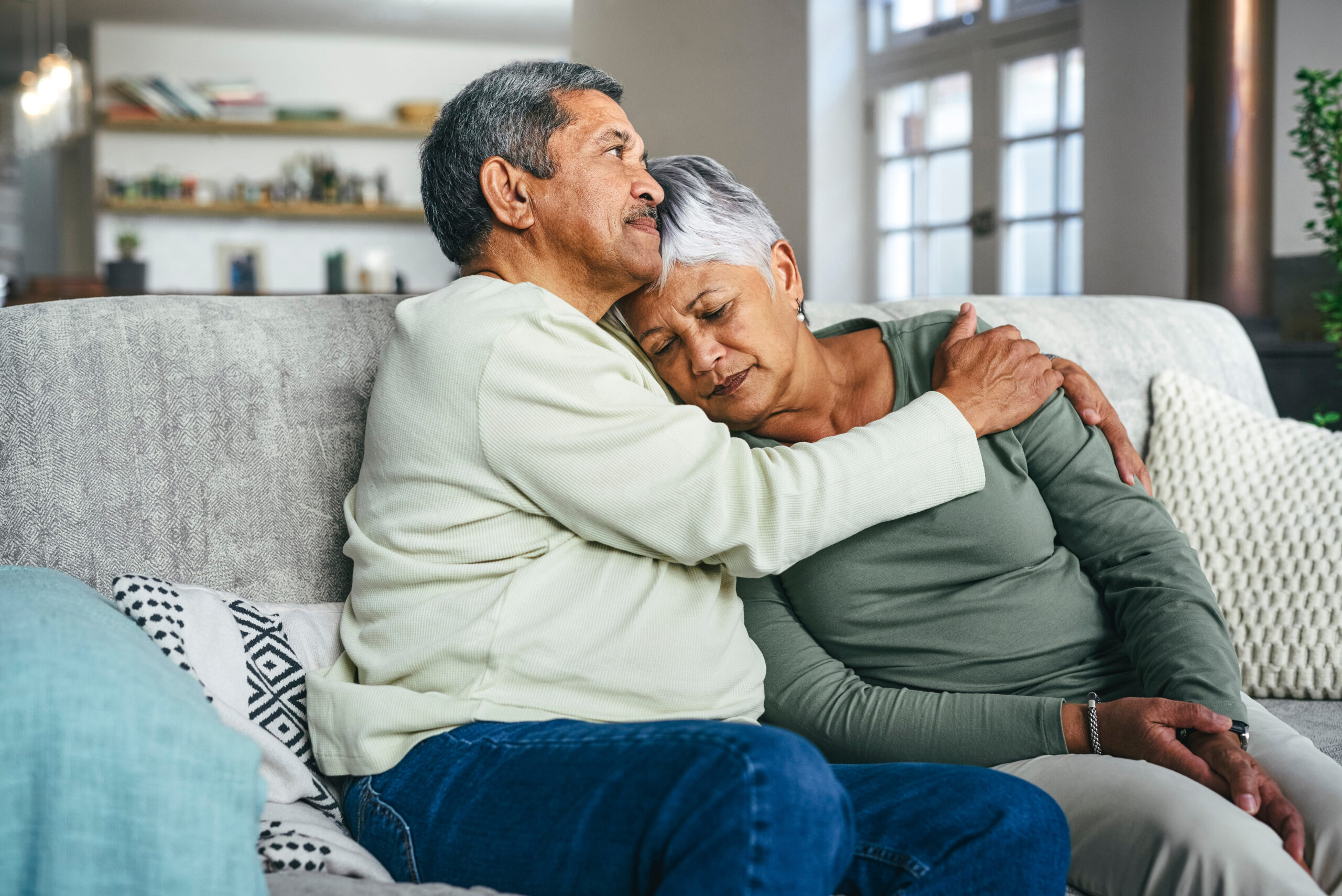4 Min Read
A Guide to Bereavement for Seniors & Caretakers

Unfortunately, death is a natural part of life. The older you get, the more likely you are to face losing loved ones. When seniors lose friends, spouses, siblings, and neighbors it can be very isolating and upsetting. While losing a loved one is never easy, here are some tips for coping with bereavement.
Bereavement Tips for Seniors:
- Eat well, exercise regularly, and take prescribed medication. When dealing with the loss of a loved one, it’s easy to abandon your normal routines. However, skipping meals and exercise or not taking your medication can—and will—do more harm than good. Staying on top of your healthy habits can help you stay physically and mentally fit.
- Don’t isolate yourself. Grief is tricky, and everyone copes differently. After losing a loved one, you may feel like you need alone time—and that’s fine. But leaning into close relationships with friends and family can help you deal with your emotions in a healthy way.
- Allow yourself time to rest. Grief is an extremely draining emotion. Don’t feel bad if you feel exhausted when dealing with loss—it’s completely normal. Taking time to let your body and mind recharge is a necessity.
- Don’t be afraid to ask for help. Asking for help can sometimes be hard, but you may need it after losing a close loved one—like a spouse. Your friends, family, and caregivers are here for you. Tell them if you’re feeling down or unable to complete everyday tasks. Support is always available.
- Join a bereavement or grief support group. Connecting with people who are in similar situations can help greatly. You may find comfort in speaking with someone who has lost a loved one and how they dealt with it.
- Find a creative outlet. Creative activities—like painting, drawing, scrapbooking, writing, and sculpting—can help you express things you can’t put into words. Grief is a heavy emotion. Creating something can give you a healthy outlet for expressing your feelings. Plus, research suggests that creative expressions can help relieve stress and feelings of depression.
- Reflect on the memories. Remember the good times you had with your loved one. Look through photos, create a collage, tell stories about them, listen to their favorite song, or watch their favorite movie. However you choose to reflect, remember the amazing times you shared together.
Bereavement Tips for Caregivers:
- Listen to them. A senior dealing with bereavement often needs someone to listen. Share stories with them. Ask them how they’re doing. Most importantly, let your loved one know you’re there for them.
- Lend a helping hand. Understanding your loved one may have difficulty caring for themselves while coping with loss, ask how you can help. Simple tasks like making their meals, doing laundry, cleaning up around the house, or giving them a ride to the store or doctor can greatly help.
- Visit them. Your loved one may feel lonely after their loss. Make sure to visit them. Consider bringing activities that help get their mind off things, such as puzzles or movies. Call or video chat with them if you cannot visit in person.
- Help them organize. If your loved one lost their spouse, they might feel overwhelmed going through their belongings. Offer to help them through it. Having support relieves some of the pressure from them.
In conclusion, grief never truly ends entirely. You’ll never fully “get over” losing a loved one, but how you deal with bereavement can help your overall journey to healing mentally, spiritually, and physically. Always remember the good times and know that support is available when needed.

0 Comments